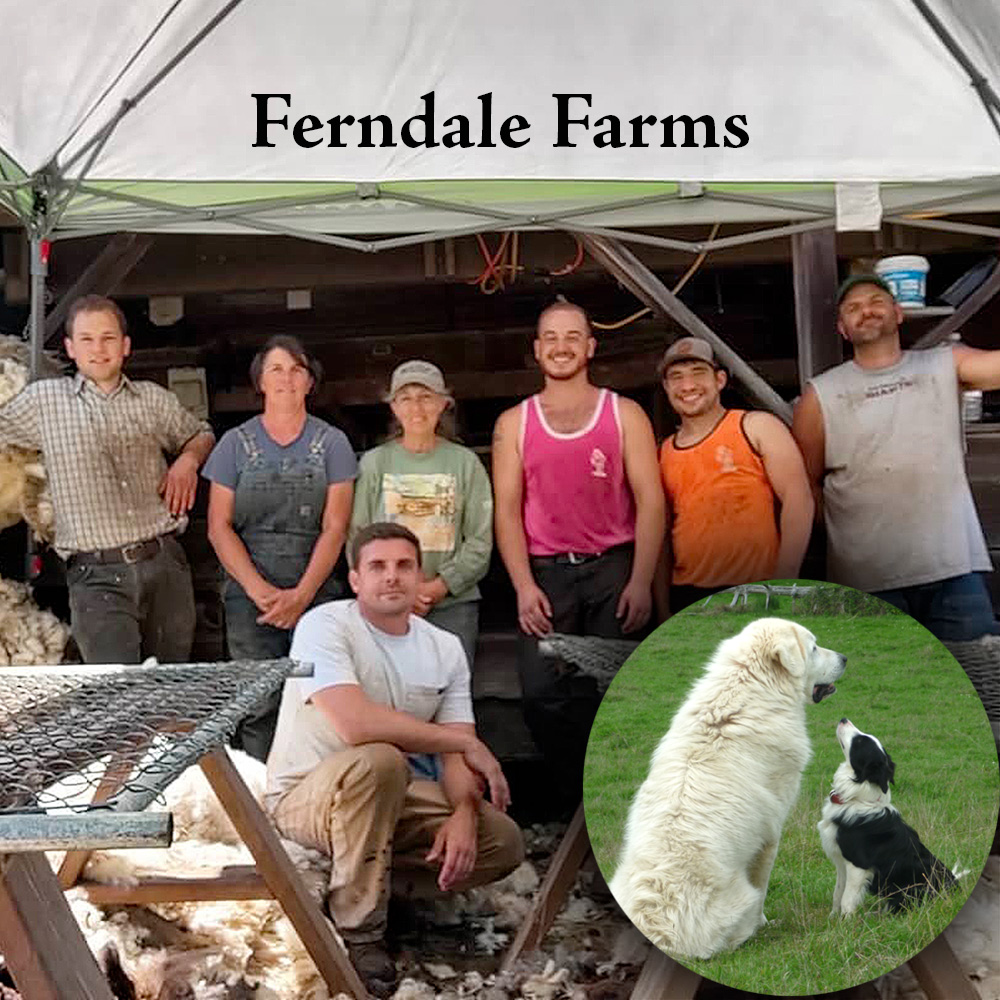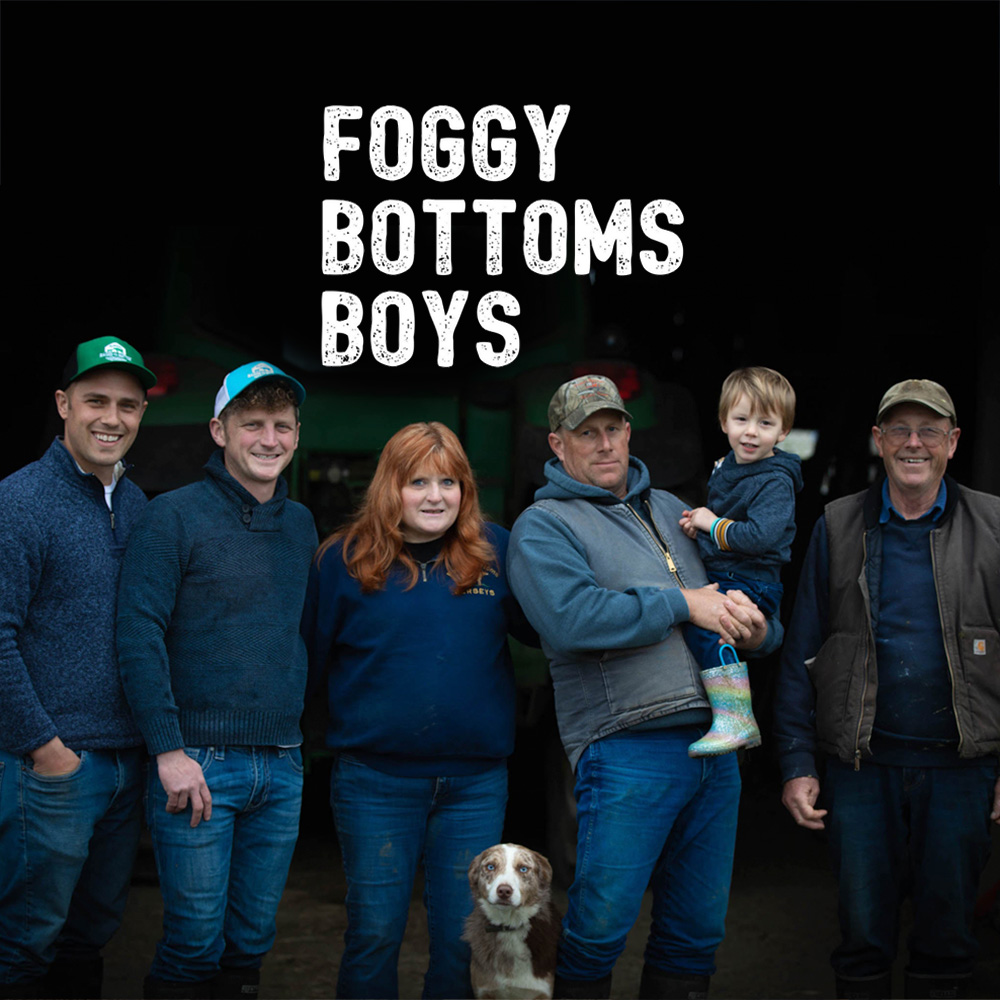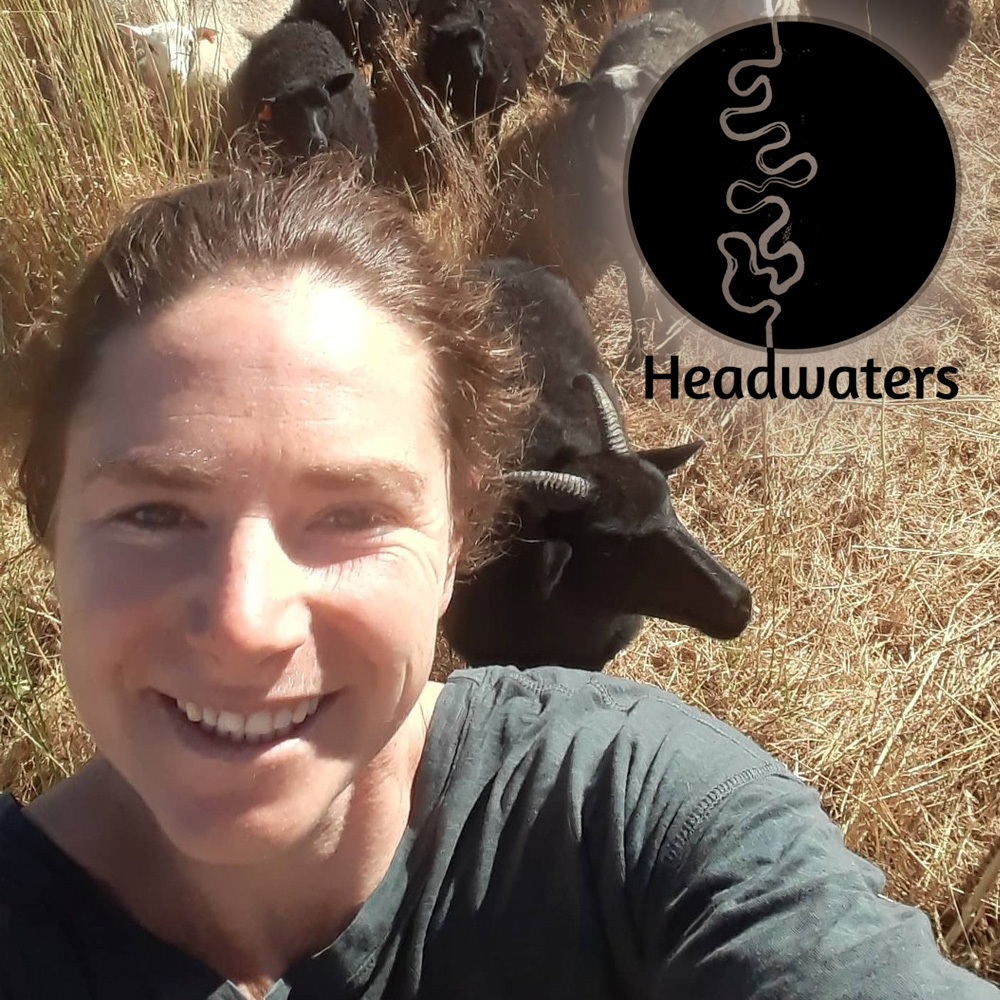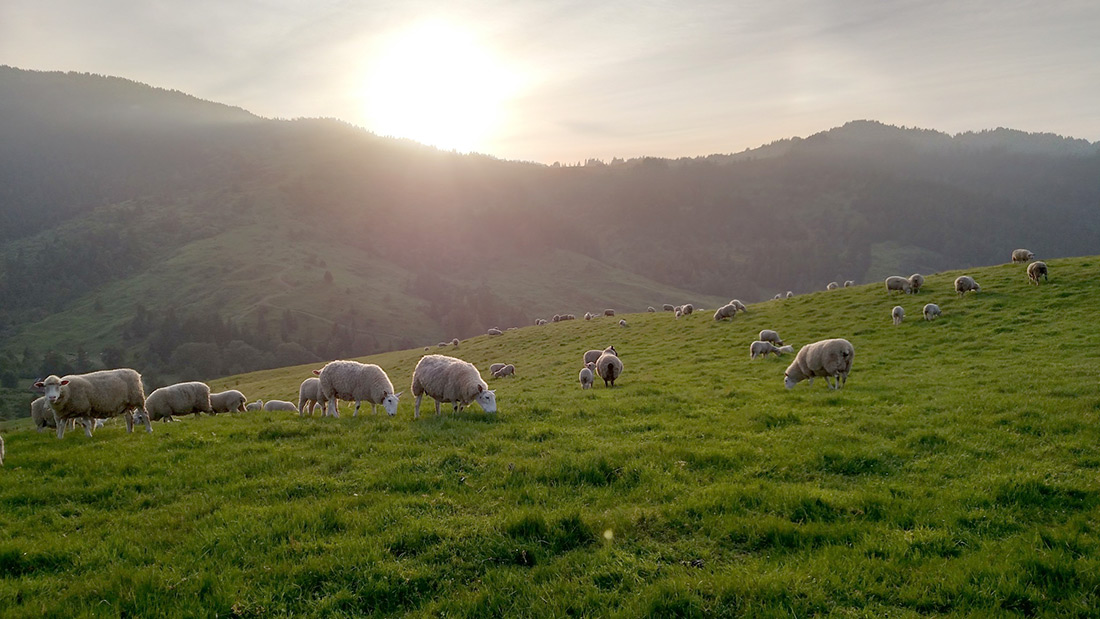05 Feb California Coast Region of Sheep Producers Story
Discover the rich heritage and modern practices of lamb farming in California in this article.
Meet a few of the California Coast region’s local farmers who are blending tradition with innovation to sustainably raise high-quality lamb products. Catch a unique glimpse into the dedicated community behind these California lamb producers, showcasing their commitment to ethical farming, environmental stewardship, and industry evolution.
 Deep in Humboldt County, tucked along the coastline of northern California, you’ll find Ferndale Farms. This small sheep and cattle farm has been owned and operated by the Hackett family since around 1903, “hours from anywhere” as owner Jill Hackett describes it. Jill Hackett and her sons Conner and Walter (Tanner) Hackett manage Ferndale Farms today. And as beautiful and hardy as the sheep it raises, Ferndale has weathered the Great Depression, supplied vital wool during World War I and II, piloted through economic turbulence, and dealt with the ebbs and flows of local predator populations. Coyotes in particular are a real problem now, and everything from trained dogs to guard llamas (yes, you read that right) have been called in to help.
Deep in Humboldt County, tucked along the coastline of northern California, you’ll find Ferndale Farms. This small sheep and cattle farm has been owned and operated by the Hackett family since around 1903, “hours from anywhere” as owner Jill Hackett describes it. Jill Hackett and her sons Conner and Walter (Tanner) Hackett manage Ferndale Farms today. And as beautiful and hardy as the sheep it raises, Ferndale has weathered the Great Depression, supplied vital wool during World War I and II, piloted through economic turbulence, and dealt with the ebbs and flows of local predator populations. Coyotes in particular are a real problem now, and everything from trained dogs to guard llamas (yes, you read that right) have been called in to help.
“I feel a sense of pride not only for our family but for the other sheep producers, our friends, in our region that are still around. It hasn’t been easy, yet these folks are doing some amazing things” says Walter Hackett.
 There’s the Foggy Bottoms Boys just down the road from Ferndale Farms. They are a 6th-generation working organic dairy farm since the 18960s in the Eel River Valley, California. They have embraced diversification and regenerative farming. Thomas & Cody Nicholson Stratton have integrated their passion for varied livestock into the farm’s operations focusing on sheep, among other animals. They produce high-quality pasture-raised products which you can buy directly from their website. They also collaborate with Rumiano Cheese Co. and they focus on their commitment to sustainable practices and community engagement. Stewards of the land, they are dedicated to regenerative soil health, ethical animal husbandry, and providing education on local food systems through their farm’s offerings and social media outreach.
There’s the Foggy Bottoms Boys just down the road from Ferndale Farms. They are a 6th-generation working organic dairy farm since the 18960s in the Eel River Valley, California. They have embraced diversification and regenerative farming. Thomas & Cody Nicholson Stratton have integrated their passion for varied livestock into the farm’s operations focusing on sheep, among other animals. They produce high-quality pasture-raised products which you can buy directly from their website. They also collaborate with Rumiano Cheese Co. and they focus on their commitment to sustainable practices and community engagement. Stewards of the land, they are dedicated to regenerative soil health, ethical animal husbandry, and providing education on local food systems through their farm’s offerings and social media outreach.

Then there’s Headwaters Grazing located in Willits, California. They offer a range of services and products, encompassing grazing, grass-fed lamb and beef, and wool items like yarn, roving, and sheepskins. You can purchase directly from their site, or sign up for meat share programs here. In addition, we occasionally host workshops and events. Their Icelandic sheep, safeguarded by a guardian donkey, graze deliberately across Mendocino County’s varied ecosystems. Their operations are anchored at Ridgewood Ranch, under the management of the Golden Rule Church Association and collaborate with the New Agrarian Collective, the School of Adaptive Agriculture, and Golden Rule Gardens.
While many aspects of today’s sheep producers’ operations are timeless and unchanging, there’s no denying that we live in an evolving world. Local food suppliers, especially the smaller ones, face fierce competition from imported products, and are working hard to find creative ways to share the benefits of investing in locally-sourced food. It always feels good to shop local, but this goes deeper than that, contributing to important conversations about sustainability, environmental impact, and product quality.
In fact, as soon as you start talking about the long-term benefits of buying local food, and lamb in particular, you’ll immediately sense the contagious passion shared by the Hackett family.
“Our vision is to offer ranch tours,” says Conner Hackett, “and to just be as transparent as possible with our operations and land. We want to give people insight into what we’re doing and how the animals are raised. And what it looks like out here.”
This is particularly important to the Hacketts in light of all the third-party certifications that are currently available in the food industry. Some are worth having, but some don’t really mean as much as consumers think they do.
“We want to convey the value through our brand and through our product quality,” Conner says. “And through the stories that our customers share. Meat markets, butcher shops, restaurants… All their feedback is so important to us. We don’t want to take any shortcuts… but rather to tell that story organically. To do the hard work and build trust with customers.”

In an environment like Ferndale, the sheep are never fed grain or grain substitutes, never fed in an enclosed feedlot, and primarily graze the natural grasses, herbs, weeds, and shrub leaves. Grass-fed is simply a way of life, and the Hacketts are telling the story of how their animals are raised and treated directly with their customers. And, of course, healthy and happy animals yield exceptional quality meat – a benefit that speaks for itself with the first taste.
Another story the Hacketts love to share is how their farm is uniquely positioned to help care for the land. California’s northern, coastal region is biologically different from most of the state in its rainfall levels, soil type, and temperatures throughout the year. These conditions are absolutely ideal for growing and fattening animals on grass, in turn helping to promote the long-term health and balance of the local environment. Walter describes it as a symbiotic relationship: the sheep benefit from the grass, and the land benefits from the sheep. Strategic, rotational grazing prevents any one area from being exhausted by the animals, and so does the continuous supply of natural fertilization. This cycle increases the carbon sequestration potential of the land as a whole, removing carbon from the atmosphere and contributing to the fight against climate change.
There’s another foundational benefit to this ethical, natural way of raising and harvesting animals: the flavor. In fact, a huge component of the Hackett’s plan for connecting with and educating their customers is simply giving them more opportunities to taste their products. Beef and chicken are better known, but lamb is just as easy to cook with and is incredibly delicious. They’re confident that if they can help potential customers taste it and try it for themselves, they’ll see exactly what they’ve been missing.
Lamb tastings in grocery stores, for example, are a powerful way to share flavors, recipes, and knowledge. Advocates like local restaurants and food influencers are essential too.
It all comes down to knowledge and awareness on the consumer’s part, and innovation and transparency on the producer’s part. Ferndale Farms is leaning into this, seeing it as a critical part of their long-term strategy and viability.
If you would like to learn more about these producers, we encourage you to visit their websites
Ferndale Farms website | Facebook | Instagram
Foggy Bottoms Boys website | Facebook | Instagram
Headwaters Grazing website | Facebook | Instagram
If you live in locally, you certainly won’t want to miss the opportunities and resources they share.

